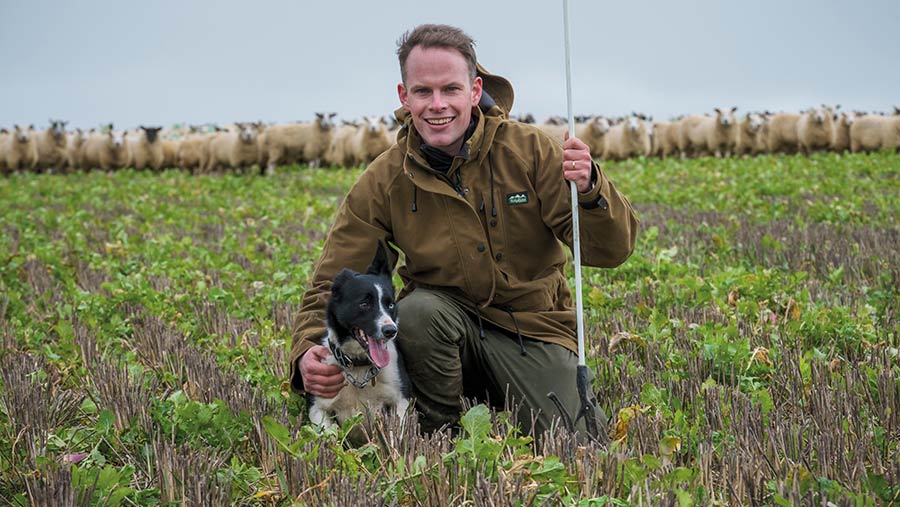Farmer Focus: First fertiliser is 15 days earlier than last year
 © Jason Bye
© Jason Bye Spring has nearly sprung and the favourable February weather has allowed us to get ahead with the early-season work.
By 4 March, we had planted 230ha of spring malting barley and got our first dose of nitrogen applied to all crops – 15 days ahead of last year.
See also: Can we continue to grow milling wheat at under 13% protein?
A quarter of our spring barley has been drilled with our Horsch Avatar, directly into cover crops that were sprayed off early.
The remainder is behind late-lifted sugar beet, which has received a single pass with a cultivator, and then drilled with our Horsch CO tine drill. As I write, the earliest drilled fields are now up.
All of our sugar beet made it into the Wissington factory, save one load that was frost damaged and found an alternate destination at a willing anaerobic digestion plant. Despite the difficulties, we met quota and budget.
We are already looking to the next season as sugar beet seed begins to arrive on farm.
Due to our varied rotations and our resolve to farm in a more environmentally friendly way, we have opted once again to go without Cruiser SB seed dressing.
Although we have invested in a fancy weather station, I don’t need to check my app to know that our soils are still too cold to begin planting the next crop of sugar beet.
When I asked our drill man if he had dared to rest his bare bottom on the soil yet – as the old Norfolk boys do to check the ground temperature – I was met with a resounding “No way!”
Talking of the old ways, I have just finished James Rebanks’ book English Pastoral. It made me think about my own family’s farming journey and the difficult path we tread between policy, production, the environment and family life.
As the last of our winter store lambs leave the farm and we embark on our first lambing in a generation with our own fledgling flock, I wonder what my grandfather would make of farming now.
He was the real shepherd of the family and a true countryman in every sense.
Sadly, I only discovered livestock after he passed away and so missed out on his years of experience. I very much hope he’ll be looking down with a smile this spring.


